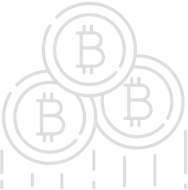FirstBlood is a blockchain based eSports platform that allows players to directly challenge each other to matches and win rewards.
STO/ICO Status
Claim this listing and publish updates.
Basics
| Platform | Ethereum |
|---|---|
| Type | N/A |
| Accepting | ETH |
| Circulating Supply | N/A |
| KYC | N/A |
| Restricted Areas | N/A |
| Homepage | Website URL |
| White Paper | View/Download |
About
First Blood is a platform that lets eSports players challenge each other to competitive games and win rewards–that is, players puts up a stake of in-platform tokens, similar to a wager. The system is made possible by smart contracts and decentralized Oracles on the Ethereum blockchain.
First Blood is not quite a betting platform: people don’t bet on the results of other people’s matches. Presumably, this runs afoul of sports betting laws, which vary by country but at in the United States restrict sports (and esports) gambling to four states. This makes First Blood different from Unikrn and Pinnacle Sports, in which people bet on the outcomes of other people’s games.
Instead, players put up a stake on their own performance–essentially challenging other players for money. Initially, they will stake in 1SŦ tokens through smart contracts that serve as escrow, but in the future, First Blood plans to include other cryptocurrencies. They can also play without staking (although some tokens will be needed to play in the first place).
First Blood uses two functions to combat prevalent problems in sports betting: match fixing and fraud. First, some players can serve as Witness nodes, who verify the results of a match, although they don’t need to actually watch the game, just run witness software that automatically gathers results. Witnesses for a particular match are chosen at random from a pool of possible witnesses, with the chances of selection based on how much 1SŦ s/he has allocated to a special pool (Jury Verification Pool). The system is reminiscent of delegated proof-of-stake consensus. A jury system will adjudicate if there are any disputes in results and ultimately would require human intervention.
The rewards for serving as witness nodes or on a jury will vary based on demand, similar to surge pricing in ride-sharing services like Uber and Lyft.
